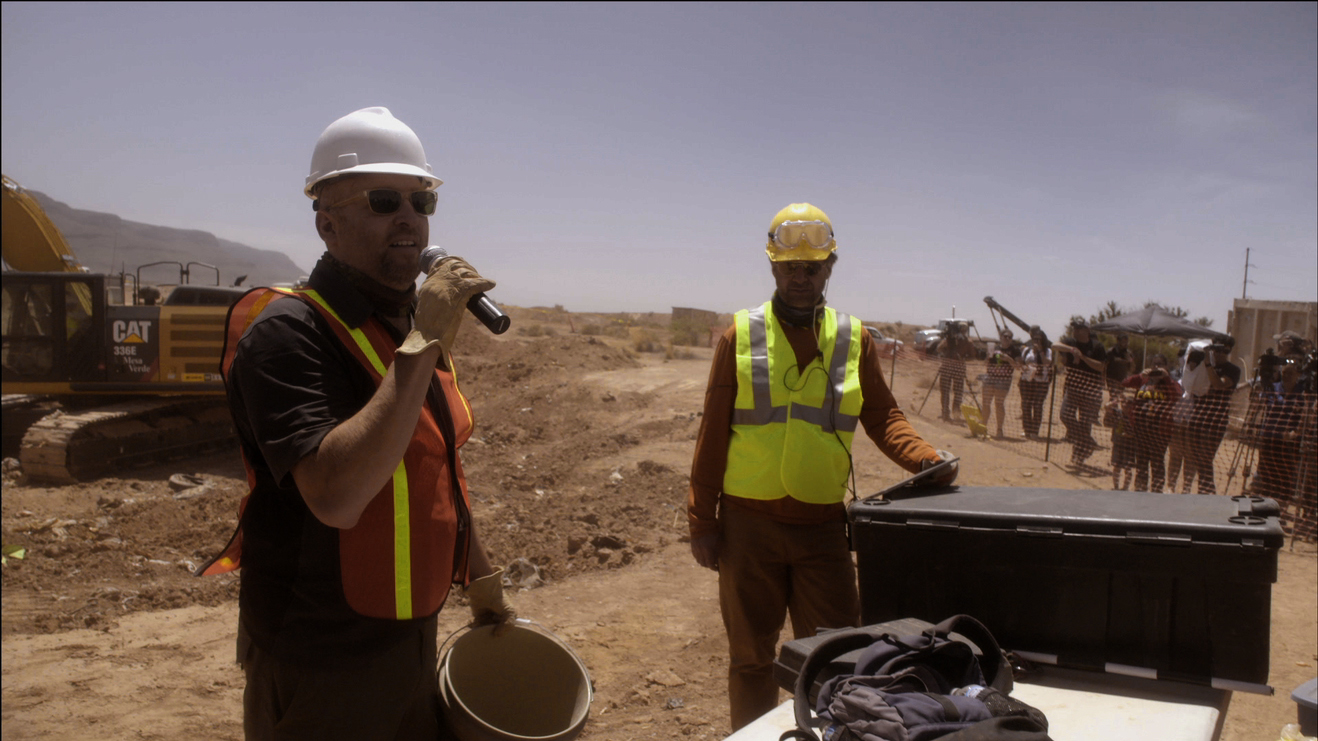Interview: Atari: Game Over Director Zak Penn On Video Games, Movie Adaptations, and Pacific Rim 2

On February 2nd the once Xbox-exclusive documentary Atari: Game Over, which followed the quest to find a massive dump of Atari E.T. cartridges that were buried in the New Mexico desert over 30 years ago, will be available on VOD. Our review will be up tomorrow (although spoiler alert, I thought it was pretty neat), but in the meantime, we had the chance to talk briefly with director Zak Penn about the project, as well as some other irons he has in the fire. If you’ve ever thought of going into screenwriting, he has some really great tips for you all.
The Mary Sue: I imagine a lot of people who watch the documentary probably already think they know the story of the ET game going in, given its larger-than-life reputation. Did you have that in mind when you were putting the film together?
Penn: I mean, I knew something about it. I knew that it was disappointing, I remember from when I was a kid, and I vaguely knew the story of the burial, and I definitely knew that people said it was the worst game ever. I probably had the exact same pre-conceptions that everybody did about it coming into it. It didn’t take long for those misconceptions to disappear, because one conversation with [Atari game designer] Howard Warshaw and you started to realize, “Oh wait. I’ve got this all wrong.” But yes, I approached it the same way probably anyone would.
TMS: There must have been a lot of aspects of the game and its origin that legitimately surprised you while filming. You just mentioned Howard—can you talk about anything else that struck you while putting the film together?
Penn: Yeah, well certainly as someone who grew up playing Atari—I had the 2600, I had Pong—I was pretty shocked by just how complicated and difficult a task it was to program those games. Particularly if you’ve played a lot of games or worked on games since, they seem so simple, but when you actually have someone who’s an engineer describe to you what was involved in creating any of them. It completely changes your mindset about how difficult, and also how revolutionary the business was at that point. I didn’t realize that Howard and most of the other programmers who worked at atari, these guys were real geniuses. This was not a group of guys scribbling or doodling on a pad to come up with their games. These are hardcore engineers. So that was something that immediately I realized, within 15 minutes of talking to Howard, that there was a whole different level of mind that was behind all this—that as a game player as a kid, you just think, “Oh, that’s fun! Someone designed a fun game!” You don’t really understand what else is behind it.
So that was one thing. Certainly the economic collapse of Atari is something I’d heard about, but I didn’t realize the full extent of how quickly it happened. That was kind of shocking to hear, or to read, when I did some background.
TMS: It almost sort of seems like it happened overnight, practically.
Penn: I mean, it practically did. It really did, in one quarter or two quarters, just collapse for a variety of reasons, some of which we go into in the film. But it’s hard to pinpoint because there’s so many aspects of this story, from the burial, in terms of how the legend itself came about—like, how people started saying that ET was the worst game ever made is partly the story of the movie. How did his strange legend come to be? Because it’s not actually true, you know. So all of that—the documentary has a lot of surprises in store, but there’s no questions that with the true story, we were consistently going in different directions because of what we were hearing.
TMS: Now that it’s clear ET’s got the worst game of all time title sort of unfairly because of the myth, I’m curious if there’s a game that you would nominate for that title, or if you’re against the whole idea in principle.
Penn: No, I’m not against it. I think it’s fine to criticize stuff and make lists, it’s fun. I really don’t have a problem with it. Look, there’s certain games—if you look at a game like Desert Bus, which if you haven’t you should check out, which was designed by Penn and Teller to be the worst game ever made. There are games like that. The truth is there’s so many games that just don’t work, that are just fundamentally broken —you put ’em in, you can’t get past a level—that you’ve got to put all of those at the top of your list.I mean, The Last Action Hero video game is pretty damn shitty if you’ve never seen it. I think we flash it in the movie. I remember because it was the first movie I ever wrote and I was so excited they were making a video game and when I saw it I just couldn’t believe how shitty it was. I’d probably put that one up there.
But there’s so many, you know? And now with mobile games, some of them I see my kids play, there’s whole new levels of shitty. I was actually just watching the South Park episode last night about Freemium game apps and it is about whole new levels of shitty that people have achieved. Particularly the ones that have bad gameplay—how do you not put one of those at the top, where they’re designed to be boring unless you pay for them? That’s gotta be the top of the list.
The Last Action Hero video game.
>>> Next Page: “Guillermo del Toro is more ambitious than I can imagine.”
Pages: 1 2
Have a tip we should know? tips@themarysue.com